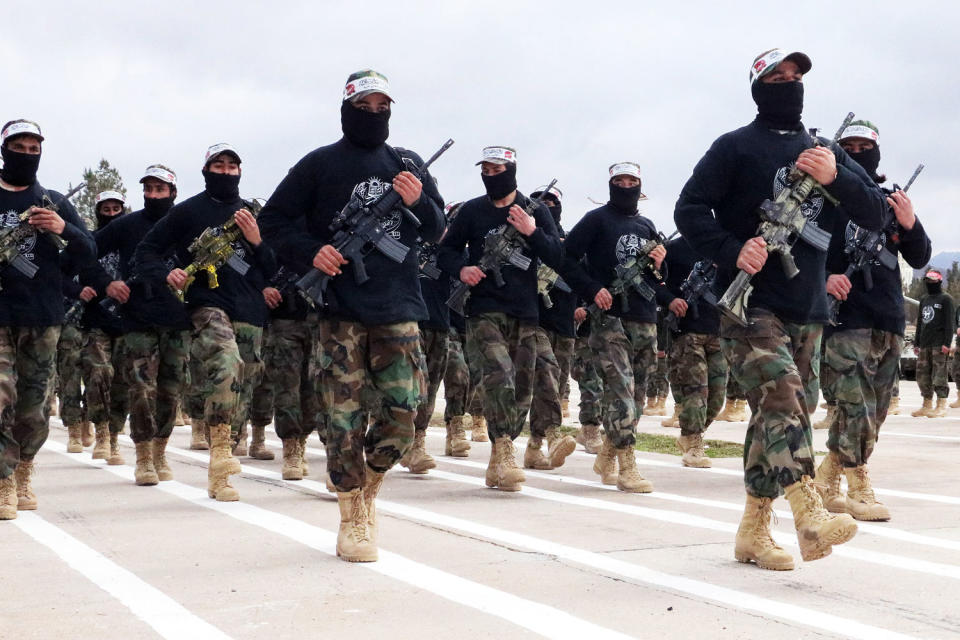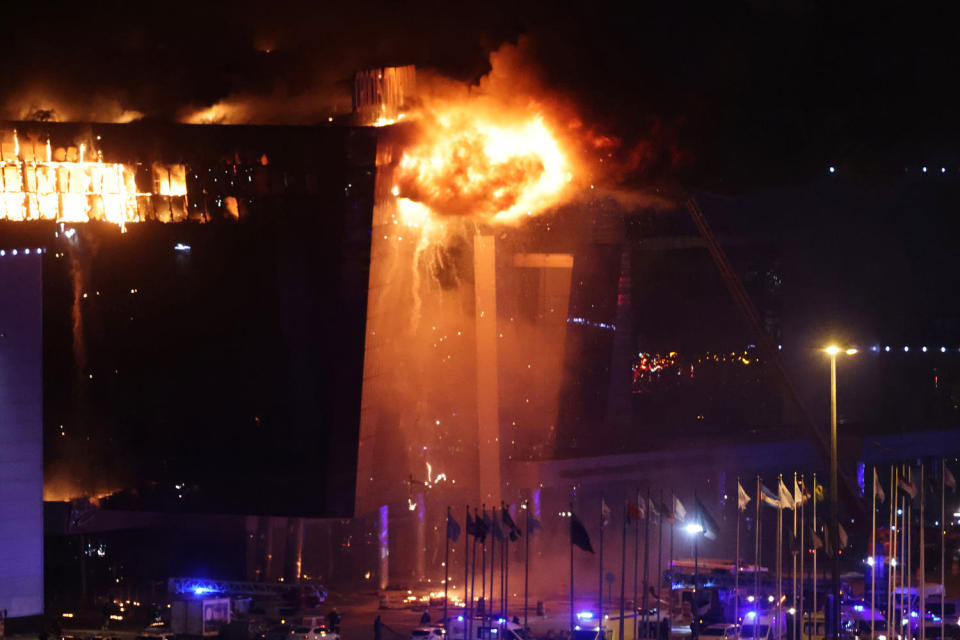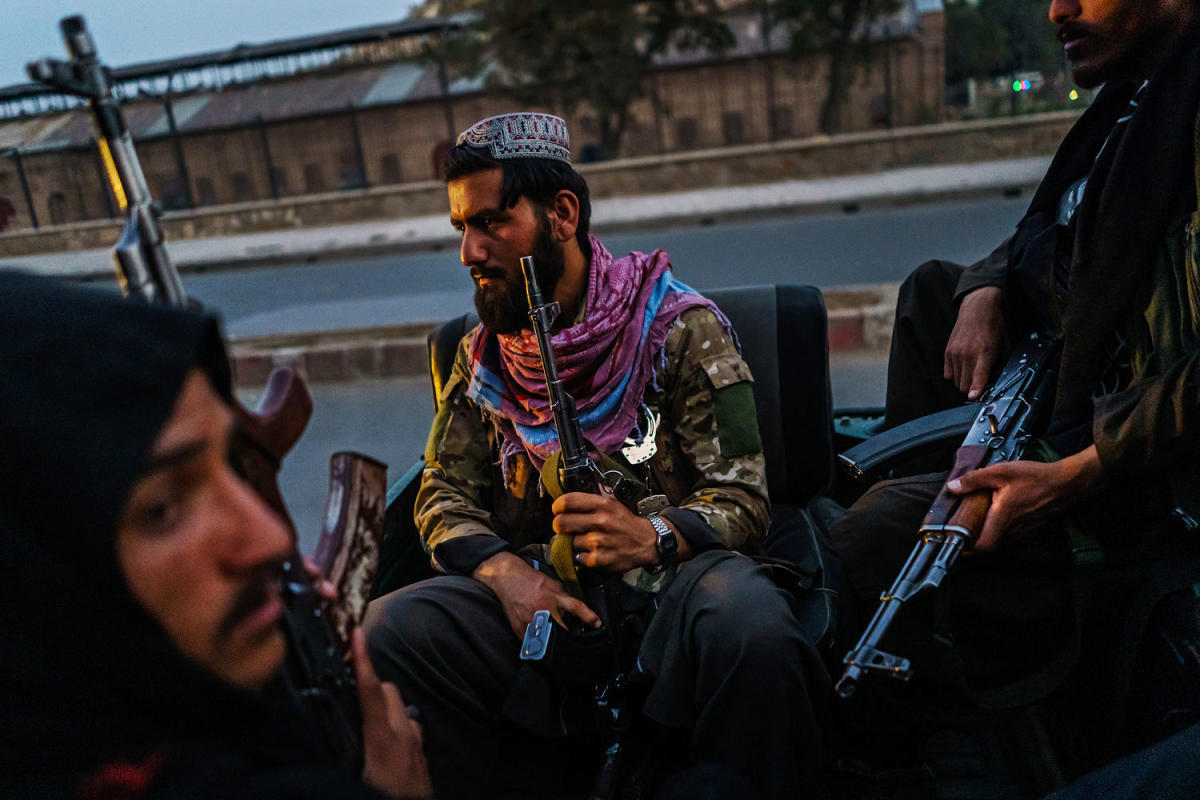Amid the growing global terrorist threat, Biden administration officials are discussing the possibility of expanding cooperation with the Taliban regime in Kabul to hunt down ISIS-K, the terrorist group’s affiliate operating in Afghanistan, according to two sources familiar with the matter and a former U.S. official.
The administration and other Western governments are scrambling to keep pace with the growing threat posed by ISIS-K. Before this year, U.S. and other Western officials believed that ISIS-K had the intent but not the capability to orchestrate attacks abroad. But that view changed with the horrific attack on the Crocus City Hall concert venue in Moscow on March 22, which killed 130 people and wounded hundreds more. It was the deadliest terrorist attack in Europe since 2004. ISIS-K also launched a major attack in Iran this year that killed dozens of people, and other plots were thwarted in Europe.
But the withdrawal of US troops from Afghanistan and declining Western influence in Africa have weakened Washington’s ability to gather intelligence on ISIS’s various branches.
“We have a very, very limited ability to see what they are doing,” said a former military officer with experience in the region.
That’s why the government is considering sharing more information with the Taliban about the Khorasan branch of ISIS, often referred to as ISIS-K.

The Taliban sees ISIS-K as a threat to its rule and has launched a series of attacks against the group. But there is deep mistrust between the West and the Taliban after a 20-year war that pitted U.S.-led forces against the Afghan militants, who seized power when U.S. troops withdrew in August 2021.
“There is an internal debate about whether we should cooperate more with the Taliban,” said a former senior official. Some members of Congress also favor this approach, though they argue that the U.S. should demand concessions from the Taliban in return, including guaranteeing more rights for Afghan women.
Some officials favor reopening the U.S. embassy to allow for greater cooperation between U.S. intelligence agencies and the Taliban regime. However, Washington has not yet recognized the Taliban leadership as the country’s legitimate government.
A White House National Security Council spokesman said there are no current plans to reopen the embassy, but that the US is talking to the Taliban.
“While the United States does not plan to reopen an embassy in Afghanistan at this time, we are working pragmatically with a wide range of Afghans, including the Taliban, through our diplomats in Doha,” the spokesperson said in an email.
The spokesperson added that “the United States is acutely focused on terrorism and over-the-horizon threats, and is working both unilaterally and with our partners to disrupt and mitigate ISIS-K and other terrorism-related threats around the world.”


It is unclear how much can be gained from even limited cooperation with the Afghan Taliban. Some officials oppose the move, fearing the Taliban will use the cooperation to pressure Washington to recognize its authority and tolerate its human rights abuses.
A study group of former senior officials, diplomats and regional experts at the US think tank Institute for Peace published a report in May calling for increased intelligence cooperation with the Taliban to combat ISIS-K.
“Sharing intelligence on common concerns like ISIS-K is the practical thing to do, and our group has generally been supportive of the U.S. government’s continued efforts to maintain such channels with the Taliban,” said Asfandyar Mir, a senior counterterrorism expert at the U.S. Institute for Peace. “We think they can and should be improved.”
US intelligence agencies declined to comment.
After the chaotic exodus of U.S. troops from Afghanistan nearly three years ago, the Biden administration said it would retain an “over-the-horizon” capability to strike terrorists inside the country if necessary. Since then, it has conducted only one such operation in Afghanistan, a drone strike that killed Osama bin Laden’s successor as al-Qaeda leader, Ayman al-Zawahiri, who was hiding in a safe house in Kabul.
According to former officials, military officers and experts, drone and other manhunts require accurate and timely information. Without U.S. teams on the ground and sufficient surveillance in the area, that information is less available.
U.S. surveillance efforts have shifted to the conflict between Israel and Hamas in Gaza, the war in Ukraine and the Navy’s efforts to protect commercial shipping in the Red Sea from attacks by Houthi forces in Yemen. Targets in Afghanistan and Pakistan have been deprioritized.
US intelligence in Africa is also facing a setback.
In a series of coups in Niger and other countries in the Sahel, anti-Western juntas have ousted US and French forces that had been hot on ISIS’s trail for years.
Extremist groups in Africa appear unable to stage terrorist attacks abroad. But if the current trend continues, that could change, experts say.
The Biden administration has also imposed more restrictions on decision-making for unilateral military strikes on terrorist targets abroad. The U.S. Institute of Peace report recommended relaxing those rules without fully restoring the latitude commanders were given during the war in Afghanistan.
The former military official said the restrictions are hampering the fight against ISIS-K, and said it has to do with what he called the officer’s reluctance to order military strikes in Afghanistan.
“There is an aversion to action,” the officer said.
However, the National Security Council spokesman said the administration is committed to addressing terrorist threats around the world and that President Joe Biden has ordered operations during his time in office that successfully targeted three high-profile terrorist figures.
In addition to the strike that killed Zawahiri, Biden approved an operation in Syria against then-ISIS leader Hajji Abdullah and an operation in Somalia that resulted in the death of Bilal al-Sudani, a senior official in ISIS’s global network.
“As President Biden has made clear, we are committed to finding and eliminating terrorist threats to the United States and the American people, wherever they may be hiding and however far away they may be,” the spokesman said.
A senior government official said that as a result of these “unprecedented” operations, “there has not been a single successful terrorist attack on the homeland on our watch.”
‘This threat’
In Afghanistan, the Taliban say they have carried out a series of operations against ISIS-K in the eastern provinces, killing many militants, but the group still poses a threat.
“I think in some places, like in eastern Afghanistan, including Kunar and Nangarhar provinces, the people of the Islamic State and their supporters were treated brutally, but it helped us get rid of this threat,” a Taliban security official told NBC News.
Another senior Taliban security official said he recently visited the north of the country to gather information about ISIS and found it had a small but significant presence. The ISIS-K militants move between Syria and Afghanistan via Iran, the official added.
Taliban officials declined to comment on information sharing with the U.S. or U.S. allies about ISIS-K.
According to a UN sanctions monitoring committee, the Taliban’s “efforts against ISIL-K [ISIS-K] appear to focus more on the internal threat facing them than on the external activities of the group.”
The head of US Central Command, Gen. Michael Kurilla, told lawmakers in March “that the Taliban’s pressure was episodic and insufficient” and that the “lack of sustained pressure allowed ISIS-K to regenerate and strengthen their networks, creating multiple redundant nodes that provided direction, enablement, and inspiration.”
Edmund Fitton-Brown, a former British diplomat and now a senior adviser at the Counter Extremism Project, a nonprofit organization, said he was skeptical that the Taliban could be a reliable partner that could help the West prevent terrorist attacks by ISIS-K.


“I don’t think this is a very advanced counterterrorism partnership, but I don’t think it’s been abandoned either,” he said.
The Taliban says it has fulfilled its commitment under an agreement signed during President Donald Trump’s administration that Afghanistan would not be used as a launch pad for terrorist attacks abroad. But foreign governments and experts say a series of attacks, including in Pakistan and Turkey, as well as large-scale attacks in Iran and Russia, can be traced to ISIS-K.
In the final chaotic days of the U.S. military’s withdrawal from Afghanistan, American commanders worked with the Taliban to maintain order around Kabul’s airport and prevent possible attacks by ISIS-K or other extremists. But the cooperation failed to prevent a deadly bombing by ISIS militants at an airport entrance, killing 13 U.S. troops and about 170 Afghan civilians.
This article was originally published on NBCNews.com





